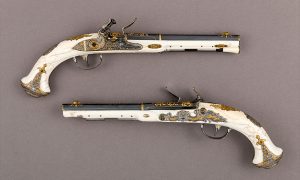
By a slip of the finger I invented a new word this week: thirth. It’s actually spelt 3th, which is what I typed by mistake when I meant to type 13th. I meant to type 13th because April 13th was National Scrabble Day. But that’s by the by.
There’s a good reason why thirth isn’t an actual word. Try saying it. Thirth. Now try saying it again. Thirth. Thirth. Thirth. You’ll go mad eventually. And that’s why we have the word third – to prevent people from going mad.
But here’s the question: why do our ordinal numbers begin ‘first, second, third’ but then fall into a consistent pattern of ‘fourth, fifth, sixth’ etc? Why do those first three have different endings to the rest? Why do the words ‘first’ and ‘second’ bear no similarity to the numbers ‘one’ and ‘two’? And why does the word ‘second’ have so many other meanings?
Unlike all the other ordinals, second can be an adjective (second coming), a noun (seconds out!) or a verb (I second that emotion). And unlike all the other ordinals, which we adapted from Old German and Norse, it came into the language from the French, who got it from the Latin, secundus.
Before the word ‘second’ came into the English language, we used the Norse derived ‘other’ for the second in order. First, other, third fourth etc. If you said “the other day”, you meant “the next day”. But ‘other’ became ambiguous, as it is today, so around 1300, when the big issues of the day were agreeing amendments to the Magna Carta and sorting out the inaccuracy of the Julian calendar, we decided to replace ‘other’ with the more specific ‘second’. And in doing so we welcomed in a word that came with all sorts of other uses.
To the Romans, secundus meant ‘following’ or ‘next’. So the French adopted it to mean ‘next after the first’ and, like croissant, we thought that was a good idea. We then went wild. The mathematicians got hold of it and used it to sub-divide a circle into small segments. One sixtieth was called a minute, from the Latin ‘minuta’, meaning a smaller portion, and a sixtieth of a minute was called a second, from the Latin ‘secunda pars minuta’, meaning the next smaller portion.
Excited by this, they looked for other circular stuff that they could rename and stumbled upon clocks. The Babylonians had hit upon the benefits of dividing time into twelfths and sixtieths thousands of years before, so the clockmakers of medieval England took this concept and built circular clock faces with hours divided into minutes and seconds, just like the geometrists had shown them.
As with most inventions, there were disputes over who first came up with what, and as with most disputes in those days, they were often settled by a duel. In fact, duels of honour became so prevalent that they were outlawed on pain of death, so, rather than stop killing each other, honourable men would appoint an assistant to accompany them in their duels, mainly to keep an eye out for the cops. I mean, you wouldn’t want to be arrested and executed when you were trying to have a fight to the death, would you?
These assistants were called ‘seconds’, because if something prevented the duellist from taking part, they woud be next in line. This gave rise to the verb ‘to second’, meaning to support.
And so, by the time Shakespeare came to draw from the well of the English vocabulary, the word ‘second’ was fully formed with all its meanings and its place firmly established in the ordinal number sequence. And that’s English for you: Romans and Vikings rubbing shoulders in perfect harmony.


